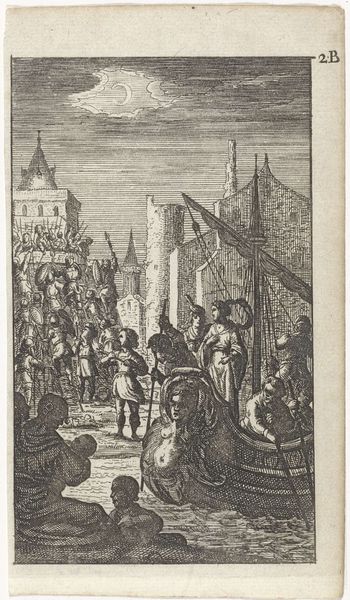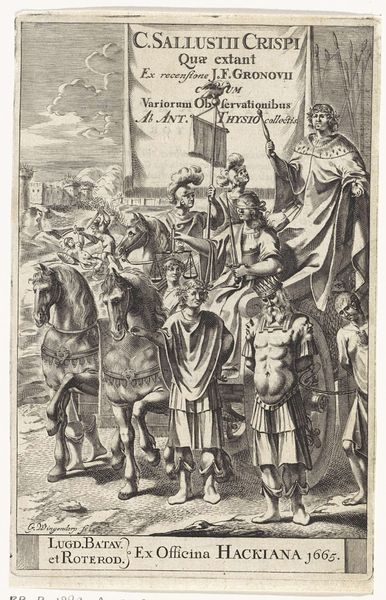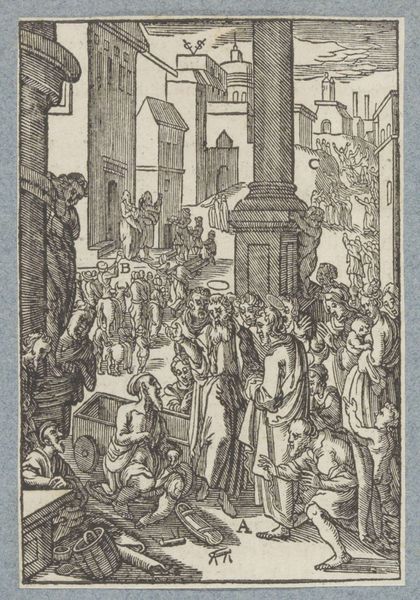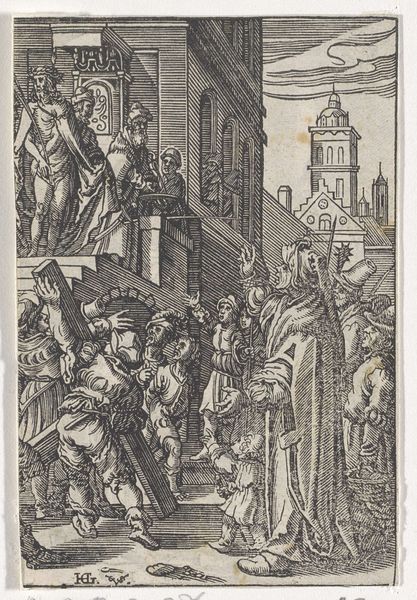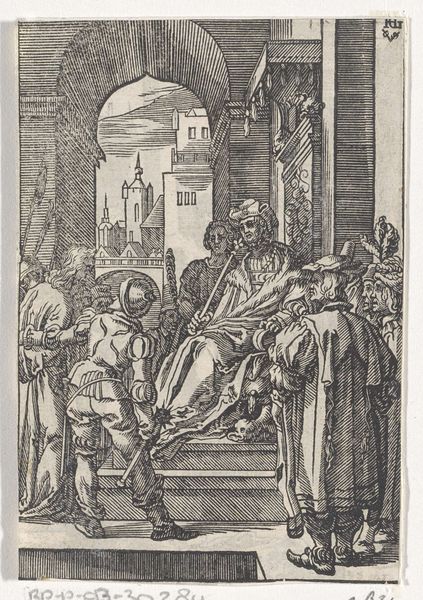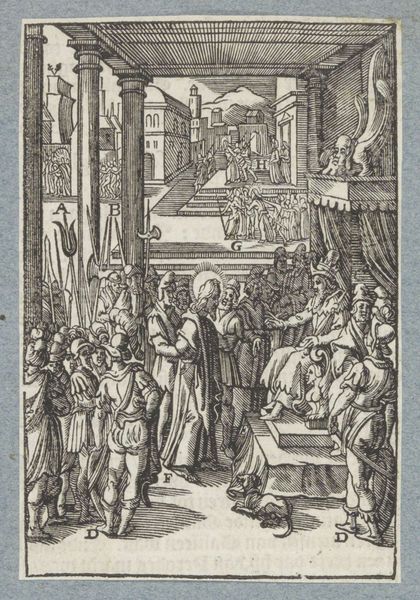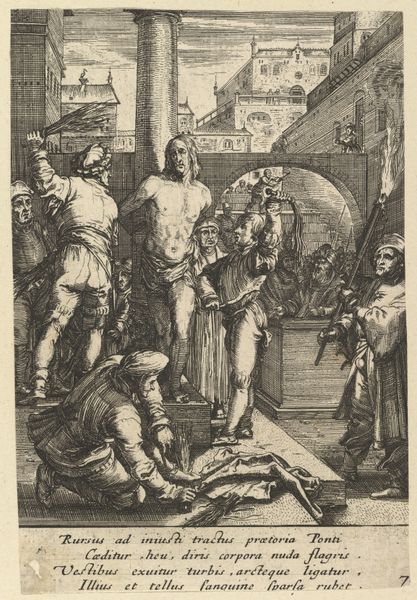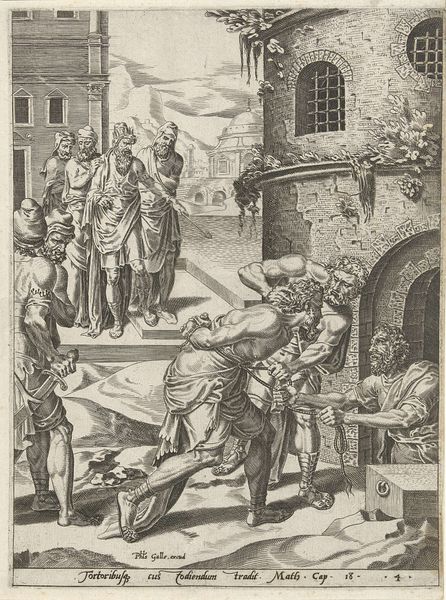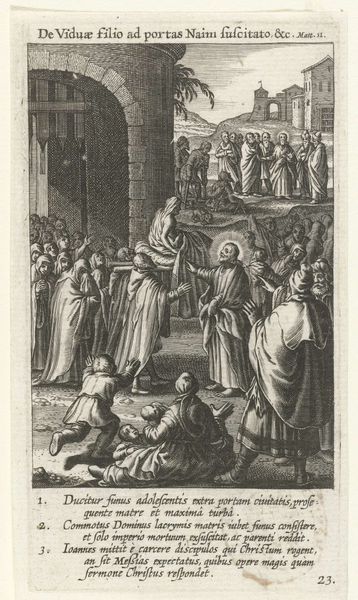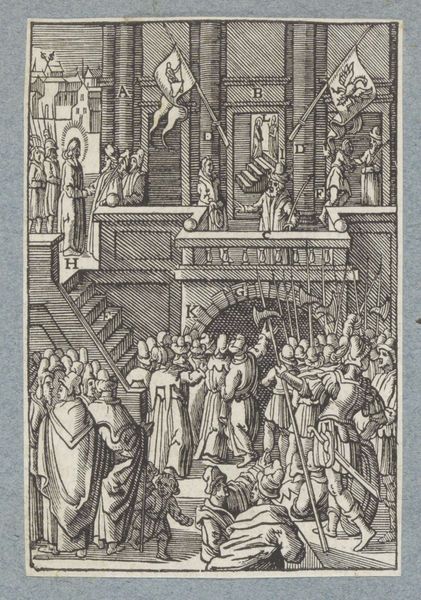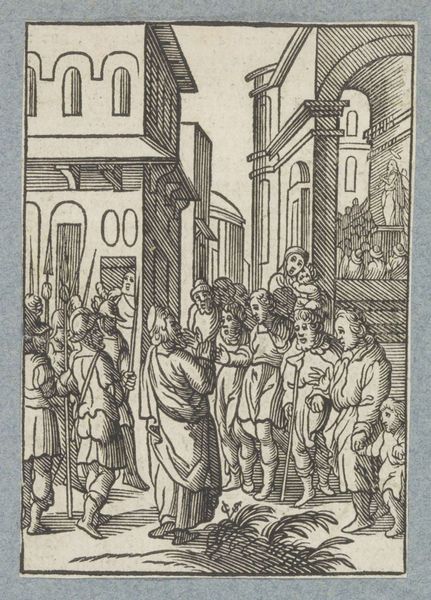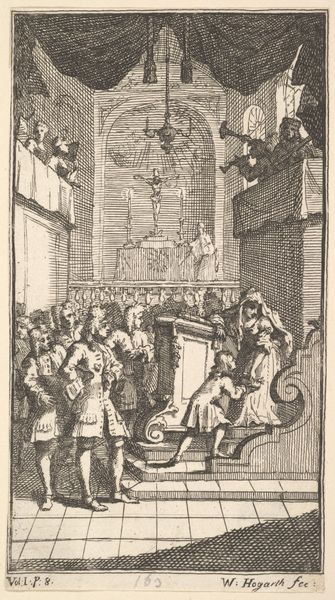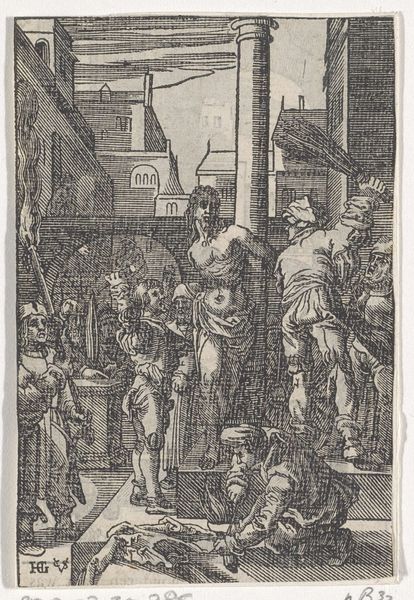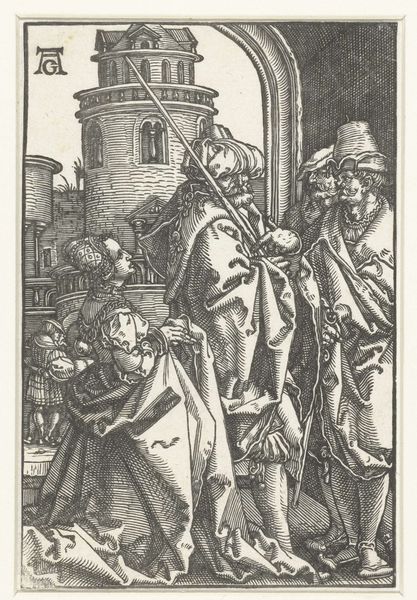
print, engraving
#
narrative-art
#
baroque
# print
#
pen sketch
#
genre-painting
#
history-painting
#
engraving
Dimensions: width 76 mm, height 131 mm
Copyright: Rijks Museum: Open Domain
Editor: This engraving by Abraham Dircksz. Santvoort, "Execution of a Condemned Man on a Scaffold," dates back to 1667 and it’s currently housed in the Rijksmuseum. The scene is… intense, obviously. It feels incredibly public, like everyone is watching. What strikes you when you look at this? Curator: What strikes me first is the seeming indifference. There's this juxtaposition of the gruesome event with the architecture around it. Aren't those lovely Dutch buildings behind the scaffold? Even the people on the balconies are coolly observing the action unfolding, almost like they’re watching a play. Makes you wonder what they are really feeling under that stiff upper lip. It reminds me a little bit of Foucault and his book *Discipline and Punish*. This really illustrates how power was exerted through public spectacles in the Baroque era. What do you think that boy right in the front is thinking? Editor: He looks terrified! Everyone around him, older, stoic…but he’s just a kid. Do you think Santvoort included him on purpose, to comment on something? Curator: Maybe. Perhaps it's about the desensitization of the population or a critique of the judicial system. Or just a dash of good ol' Dutch realism, showing the variety of human reactions. What if it’s not terror? What if it’s something else, a curiosity masked with a bit of…dread? The world’s not black and white is it? Editor: That's a chilling thought. It definitely adds another layer to the narrative. Seeing the world through a child’s eye must be radically different than for a man about to lose his head, that’s for sure. Curator: Precisely. This work, in its stark simplicity, is like a silent scream in the midst of order. Art, in its best form, does make us stop in our tracks. Editor: I learned to dig deeper for hidden narratives. Curator: Me too! There is beauty even within scenes that seem terrible if you stop long enough to breathe it in.
Comments
No comments
Be the first to comment and join the conversation on the ultimate creative platform.
